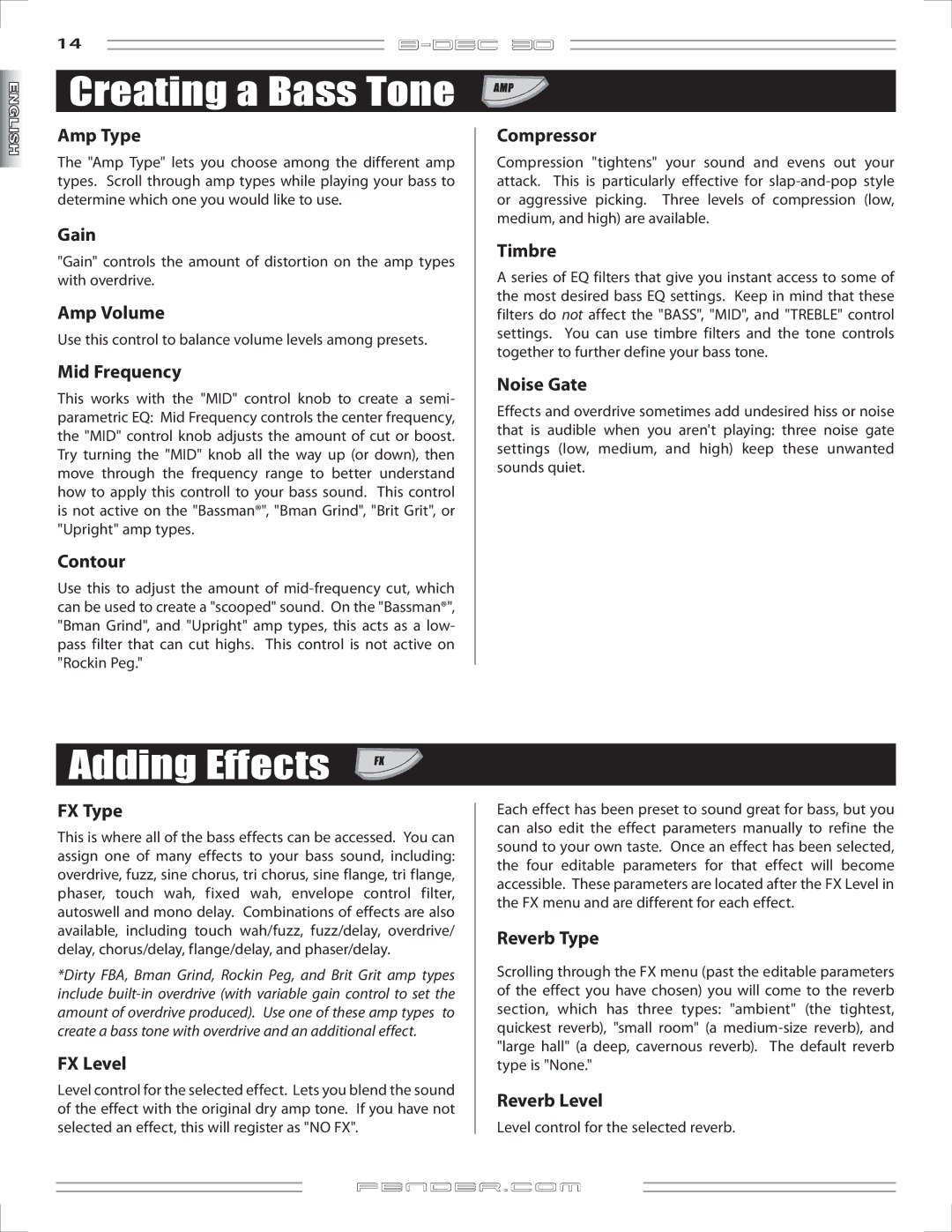
14 ![]()
![]()
Creating a Bass Tone
Amp Type
The "Amp Type" lets you choose among the different amp types. Scroll through amp types while playing your bass to determine which one you would like to use.
Gain
"Gain" controls the amount of distortion on the amp types with overdrive.
Amp Volume
Use this control to balance volume levels among presets.
Mid Frequency
This works with the "MID" control knob to create a semi- parametric EQ: Mid Frequency controls the center frequency, the "MID" control knob adjusts the amount of cut or boost. Try turning the "MID" knob all the way up (or down), then move through the frequency range to better understand how to apply this controll to your bass sound. This control is not active on the "Bassman®", "Bman Grind", "Brit Grit", or "Upright" amp types.
Contour
Use this to adjust the amount of
Adding Effects
FX Type
This is where all of the bass effects can be accessed. You can assign one of many effects to your bass sound, including: overdrive, fuzz, sine chorus, tri chorus, sine flange, tri flange, phaser, touch wah, fixed wah, envelope control filter, autoswell and mono delay. Combinations of effects are also available, including touch wah/fuzz, fuzz/delay, overdrive/ delay, chorus/delay, flange/delay, and phaser/delay.
*Dirty FBA, Bman Grind, Rockin Peg, and Brit Grit amp types include
FX Level
Level control for the selected effect. Lets you blend the sound of the effect with the original dry amp tone. If you have not selected an effect, this will register as "NO FX".
Compressor
Compression "tightens" your sound and evens out your attack. This is particularly effective for
Timbre
A series of EQ filters that give you instant access to some of the most desired bass EQ settings. Keep in mind that these filters do not affect the "BASS", "MID", and "TREBLE" control settings. You can use timbre filters and the tone controls together to further define your bass tone.
Noise Gate
Effects and overdrive sometimes add undesired hiss or noise that is audible when you aren't playing: three noise gate settings (low, medium, and high) keep these unwanted sounds quiet.
Each effect has been preset to sound great for bass, but you can also edit the effect parameters manually to refine the sound to your own taste. Once an effect has been selected, the four editable parameters for that effect will become accessible. These parameters are located after the FX Level in the FX menu and are different for each effect.
Reverb Type
Scrolling through the FX menu (past the editable parameters of the effect you have chosen) you will come to the reverb section, which has three types: "ambient" (the tightest, quickest reverb), "small room" (a
Reverb Level
Level control for the selected reverb.
FENDER![]() .COM
.COM
